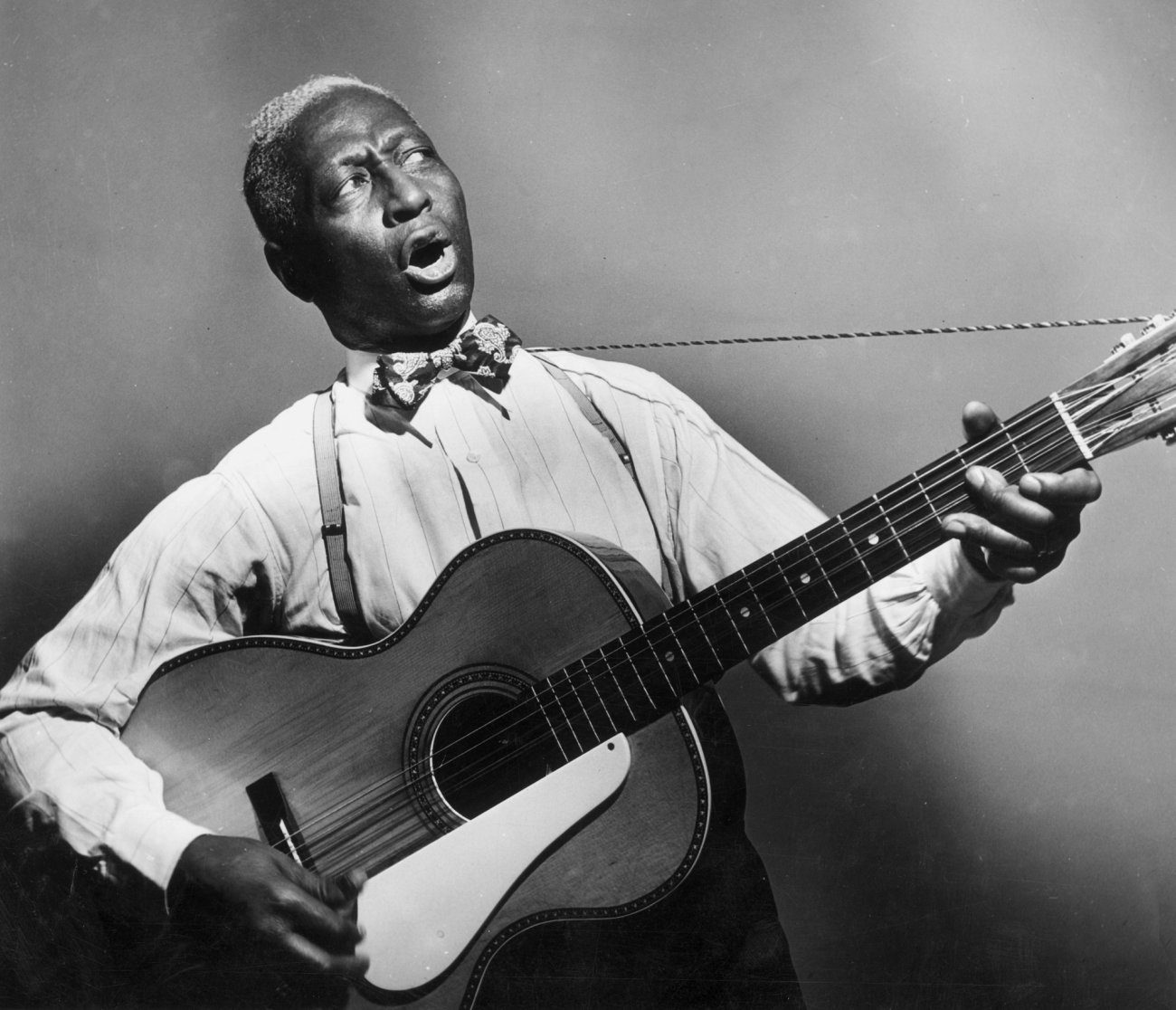FLASHBACK FRIDAY: “Goodnight Irene”

I woke up this morning to my first Brooklyn snow storm. After promptly deciding that I wasn’t going to leave the my apartment for at least 24 hours, I poured myself a cup of coffee, curled up next to my cat, and put on some folk music.
While some children needed their blankets or teddy bears to fall asleep, I relied on my parent’s rendition of Lead Belly’s American folk classic, “Goodnight Irene.” Some of my earliest childhood memories involve my parents tucking me into bed and attempting (unsuccessfully) to sing “Goodnight Irene” in a two-part harmony.
“Goodnight Irene” was originally sung and recorded by Lead Belly in 1934, but like most American folk songs, its exact origins are unknown. Lead Belly claimed that he was taught the song by his uncles. While he may have borrowed aspects of the melody and structure, Lead Belly modified the song and molded it into what it is today.
Huddie William Leadbetter, or Lead Belly (1888-1949) was an American folk, gospel and blues musician. “Lead Belly” is best known for his unique baritone voice and his prowess as an instrumentalist (specifically on the 12-string guitar). Lead Belly was born into extreme poverty in the countryside of Louisiana. Much of his early life was plagued with criminality and incarceration (twice for homicide and once for attempted homicide). Most of Lead Belly’s songs are subsequently dark, usually touching on racism, alcoholism, depression, prison life and poverty.
During Lead Belly’s final stay in prison he was discovered by folklorists Alan and John Lomax, who petitioned the governor for his pardon. The petition was eventually granted, and between 1934 and 1943 Lead Belly recorded a number of songs for the Library of Congress, one of which was “Goodnight Irene.”
Of course as a child I was oblivious to the song’s dark undertones. “Goodnight Irene,” which was almost definitely not intended as a child’s lullaby, depicts a story of a man who was kicked out by his wife and child for drinking, gambling and infidelity. In the song, Lead Belly mourns and reflects on his actions. A number of the verses contain direct references to suicide (sometimes I have a great notion, to jump in the river and drown // And if Irene turns her back on me I’d take morphine and die), adding another dimension of solemnity to the already grave lyrics.
“Goodnight Irene” might initially come off as a simple song, although upon deeper listening it can be made clear just how emotionally complex it is. The lyrics are accompanied by basic acoustic strumming. Adornment is minimal yet effective. The rolling ¾ tempo and soothing vocals make the lyrical content of the song all the more jarring. It’s almost as if Lead Belly rocks you to sleep with the music yet wakes you up and slaps you on the face with the lyrics. The result is astounding and heartbreaking.
As with a number of key American folk songs, Goodnight Irene has been covered and modified by a number of musicians, including Johnny Cash, Eric Clapton and The Weavers. Although Its success has made “Goodnight Irene” an essential example of early folk music and has carved its place as a fundamental component of the American folk music canon, to me, it was most importantly the only song that could put me to sleep as a child.





